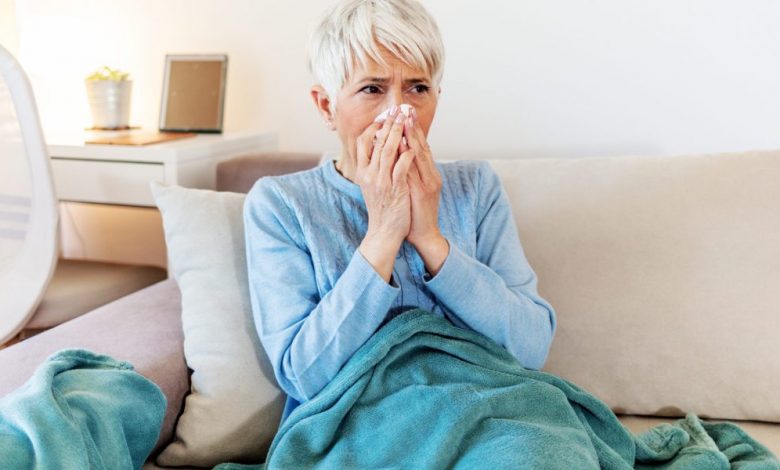RSV symptoms in older adults and how to treat them

While children’s hospitals and pediatric practices across the country are seeing a surge in cases of respiratory syncytial virus (RSV), this current surge is also affecting older adults. According to the Centers for Disease Control and Prevention, about six in every 100,000 adults have been hospitalized with the virus — a rate 10 times higher than this time of year, CNN reports.
“Concomitantly with the increase in RSV in children came an increase in RSV in adults,” explains Dr. Anh Le, a California-based pediatrician at One Medical, a membership-based primary care practice. “The usual RSV season was earlier than usual as numbers started to rise in September. It is likely that preventive measures related to COVID have led to the postponement of the season.”
RSV is generally a mild condition for healthy adults, Le says. However, for those 65 and older; have certain chronic medical conditions such as heart or lung disease; and are immunocompromised, the virus could lead to more severe illness or death. Each year, approximately 60,000 to 120,000 older adults in the United States are hospitalized with RSV, and between 6,000 and 10,000 die from RSV infection.
“This higher-risk population may develop pneumonia as a complication of RSV,” she says. “In addition, it can also aggravate conditions like asthma and COPD [chronic obstructive pulmonary disease] and congestive heart failure. All of this can lead to hospitalizations and compound problems with already busy and crowded hospitals.”
RSV symptoms in adults are similar to those in children—fever, runny nose, decreased appetite, coughing, sneezing, and wheezing. In most cases, symptoms resolve in a week or two and are usually managed with plenty of fluids and rest as there is currently no vaccine for RSV, although that could change by this time next year. If symptoms worsen or you experience shortness of breath, call your doctor or go to an emergency room as soon as possible.
“There are treatments for RSV, but unlike COVID and flu, they are not readily available in a pharmacy,” explains dr Michael Mina, epidemiologist and chief science officer at eMed. “They’re monoclonal antibodies and they work well, but they’re usually given by injection or intravenously. Treatment must be started quickly to be effective.”
To protect people at high risk of serious RSV infection, the CDC recommends that you wash your hands regularly, keep your hands away from your face, avoid close contact with sick people, cover your mouth and nose when you cough or sneeze , clean and disinfect surfaces regularly and stay at home if you are sick.
“RSV is spread through contact with other people who have RSV or by touching surfaces with the virus from people with RSV. So it’s a really good idea to wash your hands to avoid these types of viruses,” says Mina. “Wearing masks, especially at this time when flu, RSV and COVID are circulating, is very helpful to avoid infection as well.”
Sign up for the Fortune Features Email list so you don’t miss our biggest features, exclusive interviews and investigations.



